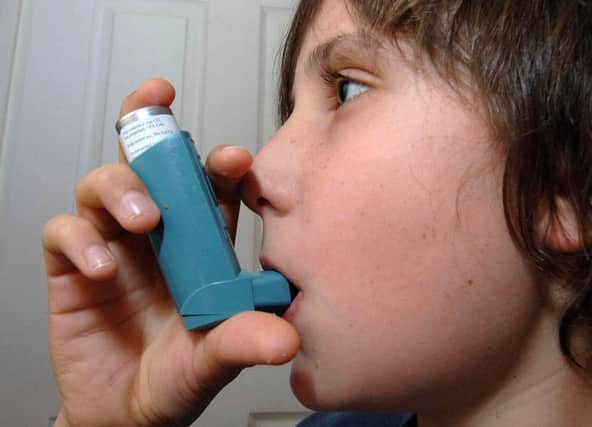How we can breathe easier about asthma


Everyone knows someone with asthma. Asthma is one of the UK’s most common chronic conditions, affecting one in 12 of the population. But it’s also one of the most challenging when it comes to keeping it under control and striking the proper balance in our messages to patients and carers. With the proper medicine and care package most people should be able to control their asthma almost all of the time and carry on with their lives as normal. But it’s also a condition which – if allowed to get out of control – can quickly spiral into something that’s often dangerous and occasionally fatal. Asthma seems to hide in plain sight, because people who live with it just get on with their lives. But the health impact is very real. More than four million adults live with the condition in the UK, as do more than a million children – two in every classroom. Shockingly, across the UK three people die every day because of complications from the disease.
Often, there’s not a single major point of failure. Small things going wrong mount up and lead to the most severe problems. And tragically, almost half of those deaths could have been avoided. This was the shock finding of the National Review of Asthma Deaths completed last year. It identified the systemic failures in care which resulted in so many avoidable deaths. The fact that so many of the victims were children and young adults makes this even more tragic.
Advertisement
Hide AdAdvertisement
Hide AdSadly, we’ve been here before. Twenty years ago a similar study of asthma deaths told us the same, common-sense advice to prevent unnecessary tragedies. So what can we do to ensure that this time around the lessons are learned and acted upon?
To effectively manage asthma we need all the vital components to work together – the patient; the drugs; the medics and the systems.
If you have asthma and you’ve been prescribed a preventer inhaler please don’t stop taking it because you feel better. It’s probably the reason you are feeling better. If you need your inhaler to relieve your symptoms please make sure you keep it with you. And if you feel that you need to use your reliever inhaler more and more often, it’s probably time to see your GP. For all people who use inhalers it’s vital that get your GP, nurse or pharmacist to check how well you’re using the inhaler itself. “Inhaler technique” and should be checked annually or more often if it’s causing you concern. It’s actually quite tricky to get the medicine all the way down and into the right part of your lungs.
GPs, practice nurses and pharmacists have a crucial role to play in improving asthma care. They are often best placed to detect the condition worsening or becoming “uncontrolled”. Simple tell-tale signs like increasing prescription requests should start to sound alarm bells. It also means ensuring that all patients receive a comprehensive check-up and continued support after an asthma attack.
Giving people the tools to manage their own condition is another vital component. People need support to recognise when symptoms are getting worse, and what to do about it. Having a written asthma action plan, setting out everyday actions to keep on top of the condition as well the steps to take when symptoms are worsening, is a well proven tool for keeping people healthier. Patients are four times less likely to be admitted to hospital if they have a plan. The National Review found that only a quarter of those who died due to asthma had an action plan. By knowing when and where to seek medical advice, many of those lives could have been saved.
Finally, a fifth of those people with asthma are of school age. Ensuring that every pupil who has asthma can get access to an inhaler in case of an attack is of critical importance, potentially life and death. This doesn’t yet happen in Scotland and is currently embroiled in legal red tape. We need the Scottish Government, NHS Scotland and local authorities to work together to develop a workable solution to prevent another tragic loss in a classroom or playground.
• Dr James Cant is head of the British Lung Foundation Scotland www.blf.org.uk